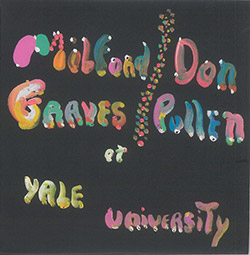
Originally issued in two volumes on their own SRP Records in 1966 & 67 as In Concert At Yale University and Nommo, the duo of drummer/percussionist Milford Graves and pianist Don Pullen are heard live in in this excitingly energetic and revelatory concert at Yale University, redefining the roles of their instruments during the most exploratory period of free jazz.
In Stock
Quantity in Basket: None
Log In to use our Wish List
Shipping Weight: 4.00 units
EU & UK Customers:
Discogs.com can handle your VAT payments
So please order through Discogs
Sample The Album:
Milford Graves-drums, percussion
Don Pullen-piano
Click an artist name above to see in-stock items for that artist.
Label: Corbett vs. Dempsey
Catalog ID: CvsDCD075
Squidco Product Code: 29473
Format: CD
Condition: New
Released: 2020
Country: USA
Packaging: Cardboard Gatefold 3 Panels
Recorded at Yale University, in New Haven, Connecticut, on April 30th, 1966, by Bernard Drayton. Originally issued on vinyl LP in 1966 & 1967 on the Self-Reliance Project label as catalog codes PG-826 (In Concert At Yale University) and LP-290 (Nommo).
"For a performance at Yale University in New Haven, Connecticut, in spring of 1966, percussionist Milford Graves invited pianist Don Pullen to play duets. The two musicians had worked together in a band fronted by saxophonist and clarinetist Giusseppi Logan, with whom they had recorded two LPs in 1965 for ESP Disk.
Graves was already a daunting presence in free music. One step at a time, he was busy transforming the role of drumming in jazz, introducing a new way of dealing with unmetered time and accomplishing this task with technique that was almost inconceivable. His experience playing timbales in Latin bands had been formative, suggesting that the snare could be used as accent rather than beat-keeper, but by the mid '60s he'd worked up a holistic approach to sound and energy that was the most radical of his improvising percussion contemporaries. And with a simpatico accomplice like Pullen, who would go on to have an illustrious career with Charles Mingus, co-fronting a band with George Adams, and as a soloist and bandleader. This early setting finds Pullen is at his most hard- hitting, and his piano concept as heard here lays to rest dubious claims of Cecil Taylorism.
Inspired by their performance, Graves and Pullen issued an LP, In Concert at Yale University, Vol. 1 on their own Self-Reliance Program imprint. The vinyl is impossibly rare, especially its first copies, which sported hand-painted covers by the musicians. A second volume titled Nommo was subsequently issued, and it too is a highly prized platter. None of this music has ever been available digitally. The tapes were lost, so in putting this production together - in the works for 10 years - virgin copies of the LPs were used.
One CD includes the two complete LPs together with original cover designs, a gallery of hand-painted LPs, and a photo of Graves and Pullen selling them at a Nation of Islam convention. An insert modeled after the original one presents an interview with Graves about the production of the records.
This is beyond the holy grail of free music. It is as vital and challenging today as it was more than five decades ago. CvsD is honored to have collaborated with Milford Graves on this historic reissue."-Corbett Vs Dempsey
Artist Biographies
• Show Bio for Milford Graves "Milford Graves (born August 20, 1941 in Queens, New York) is an American jazz drummer and percussionist, most noteworthy for his early avant-garde contributions in the early 1960s with Paul Bley and the New York Art Quartet alongside John Tchicai, Roswell Rudd, and Reggie Workman. He is considered to be a free jazz pioneer, liberating the percussion from its timekeeping role. In fact, many of his music contemporaries, musician inspirees, and fans worldwide would argue that Graves is perhaps the most influential known musician in the development and continuing evolution of free-jazz/avant-garde music, to date. Milford Graves taught at Bennington College, in Bennington, Vermont, as a full-time professor from 1973 until 2011, when he was awarded Emeritus status. Initially playing timbales as a kid growing up in Queens, Graves has worked as a sideman and session musician with a variety of jazz musicians throughout his career, including Pharoah Sanders, Rashied Ali, Albert Ayler, Don Pullen, Kenny Clarke, Don Moye, Andrew Cyrille, Philly Joe Jones, Eddie Gómez, and John Zorn. He has invested his time in research within the field of healing through music. In 2013, Milford Graves along with Drs.Carlo Tremolada and Carlo Ventura received a patent for an invention that relates to a process of preparing a non-expanded tissue derivative, that is not subjected to cell proliferation in vitro, which has a vascular-stromal fraction enriched in stem and multipotent elements, such as pericytes and/or mesenchymal stem cells, or for preparing non-embryonic stem cells obtained from a tissue sample or from such tissue derivative, wherein the tissue derivative or such cells are subjected to vibrations derived from a heart sound to control the degree of differentiation or possible differentiation of the stem and multipotent elements into several other types of cells and optimize their potency. The invention relates also to a device for carrying out the process, to stem cells obtainable by the process as well as a drug for the regeneration of an animal tissue." ^ Hide Bio for Milford Graves • Show Bio for Don Pullen "Don Gabriel Pullen (December 25, 1941 Š April 22, 1995) was an American jazz pianist and organist. Pullen developed a strikingly individual style throughout his career. He composed pieces ranging from blues to bebop and modern jazz. The great variety of his body of work makes it difficult to pigeonhole his musical style. Pullen was born on December 25, 1941, and raised in Roanoke, Virginia. Growing up in a musical family, he learned the piano at an early age. He played with the choir in his local church and was heavily influenced by his cousin, Clyde "Fats" Wright, who was a professional jazz pianist. He took some lessons in classical piano and knew little of jazz. At this time, he was mainly aware of church music and the blues. Pullen left Roanoke for Johnson C. Smith University in North Carolina to study for a medical career but soon he realized that his true vocation was music. After playing with local musicians and being exposed for the first time to albums of the major jazz musicians and composers he abandoned his medical studies. He set out to make a career in music, desirous of playing like Ornette Coleman and Eric Dolphy. In 1964 he went to Chicago for a few weeks, where he encountered Muhal Richard Abrams' philosophy of making music. He then headed for New York, where he was soon introduced to avant-garde saxophonist Giuseppi Logan, who invited Pullen to play piano on his two albums, Giuseppi Logan (ESP, October 1964) and More (ESP, May 1965), both exercises in structured free playing. Although these were Logan's recordings, most critical attention[who?] was given to the playing of percussionist Milford Graves and the unknown Pullen. Subsequently, Pullen and Graves formed a duo. Their concert at Yale University in May 1966 was recorded. They formed their own independent SRP record label (standing for "Self Reliance Project") to publish the result as two LPs. These were the first records to bear Pullen's name, second to Milford's. Although not greatly known in the United States, these avant-garde albums were well received in Europe, most copies being sold there. These recordings have never been reissued. Finding little money in playing avant-garde jazz, Pullen began to play the Hammond organ to extend his opportunities for work, transferring elements of his individual piano style to this instrument. During the remainder of the 1960s and early 1970s, he played with his own organ trio in clubs and bars, worked as a self-taught arranger for record companies, and accompanied various singers including Arthur Prysock, Irene Reid, Ruth Brown, Jimmy Rushing and Nina Simone. In 1972, Pullen briefly appeared with Art Blakey's Jazz Messengers. Pullen often polarized critics and suffered from two undeserved allegations: the first (despite his grounding in the church and blues) that he was purely a free jazz player and thus unemployable in any other context; the second that he had been heavily influenced by Cecil Taylor or was a clone of Taylor, to whose playing Pullen's own bore a superficial resemblance. Pullen strenuously denied that he had any link with Taylor, stating that his own style had been developed in isolation before he ever heard of Taylor. But the assertion of Taylor's influence continued to haunt Pullen to the end of Pullen's life, and persists even to this day. Pullen appeared on no more commercial recordings until 1971 and 1972 when he played organ on three recordings by altoist Charles Williams, one being issued under the title of a Pullen composition, "Trees And Grass And Things".Mingus connection (1973 to 1975) In 1973 drummer Roy Brooks introduced Pullen to bassist Charles Mingus, and after a brief audition he took over the vacant piano chair in the Mingus group; when a tenor saxophone player was needed, Pullen recommended George Adams; subsequently, Dannie Richmond returned on drums; these men, together with Jack Walrath on trumpet, formed the last great Mingus group. Being part of the Mingus group and appearing at many concerts and on three Mingus studio recordings, Mingus Moves (1973), Changes One and Changes Two (both 1974), gave great exposure to Pullen's playing and helped to persuade audiences and critics that Pullen was not just a free jazz player. Two of his own compositions, "Newcomer" and "Big Alice", were recorded on the Mingus Moves session, but "Big Alice" was not released until a CD reissue many years later. However, musical disagreements with Mingus caused Pullen to leave the group in 1975. Pullen had always played piano with bass and drums behind him, feeling more comfortable this way, but in early 1975 he was persuaded to play a solo concert in Toronto. This was recorded as Solo Piano Album (Sackville) and became the first record issued under Pullen's name alone. Among other pieces, it contains "Sweet (Suite) Malcolm", declared a masterpiece by Cameron Brown, Pullen's longtime associate of later years. There was now growing awareness of Pullen's abilities, but it was the European recording companies that were prepared to preserve them. In 1975 an Italian record company gave Pullen, George Adams, and Dannie Richmond the opportunity to each make a recording under his own name. All three collaborated in the others' recordings. In the same year, Pullen made two further solo recordings in Italy, Five To Go (Horo) and Healing Force (Black Saint), the latter being received with great acclaim. He became part of the regular seasonal tours of American musicians to Europe, playing in the avant-garde or free mode. In 1977, Pullen was signed by a major American record company, Atlantic Records. This led to two records, the atypical Tomorrow's Promises and the live Montreux Concert. But after these, Pullen's association with Atlantic was terminated and he returned to European companies for three recordings under his own name or in partnership: Warriors and Milano Strut in 1978, and The Magic Triangle in 1979. These, especially the startling Warriors with its strong 30-minute title track, have remained in the catalogues over the years. Meanwhile, he recorded with groups led by Billy Hart (drums), Hamiet Bluiett (baritone sax), Cecil McBee (bass), Sunny Murray (drums) and Marcello Melis (bass). On the formation of the first Mingus Dynasty band Pullen occupied the piano chair and appeared on their recording Chair In The Sky in 1979, but he soon left the band, feeling the music had diverged too far from Mingus' intentions.George Adams/Don Pullen Quartet (1979 to 1988) In late 1979 Pullen, Adams, and Richmond were booked to play as a quartet for a European tour of a few weeks' duration. Pullen invited Cameron Brown to join them on bass. They were asked to bill themselves as a "Mingus group", but not wanting to be identified as mere copyists, they declined and performed as the George Adams/Don Pullen Quartet. They played music that was more structured than Pullen normally favored, but the immediate rapport among them led to the group touring the world with unchanged personnel until the death of Richmond in early 1988. From very early in their first tour in 1979, and until 1985, the quartet made a dozen recordings for European labels, both in the studio and in concert. Of these, Earth Beams (1980), Live At The Village Vanguard (1983) and Decisions (1984) provide typically fine examples of their work at that period. Although highly regarded in Europe, the quartet felt they were not well enough known in America, so in 1986 they signed to record for Blue Note Records, for which they recorded Breakthrough (1986) and Song Everlasting (1987). Beginning the Blue Note contract with great hope of increased fame and success, as shown by the title of the first album, they became disillusioned by the poor availability of the two records. Although the power of their live concerts maintained their reputation as one of the most exciting groups ever seen, the music recorded for the Blue Note sessions was at first deemed "smoother" than on their European recordings, and took time to achieve the same high reputation. After the death of Dannie Richmond the quartet fulfilled their remaining contracted engagements with drummer Lewis Nash and then disbanded in mid-1988. Their music, usually original compositions by Pullen, Adams and Richmond, had ranged from blues, through ballads, to post-bop and avant-garde. The ability of the players to encompass all these areas, often within one composition, removed any sameness or sterility from the quartet format. Except for the early recordings on the vanished Horo label, their European recordings on Soulnote and Timeless remained frequently available, unlike those made for Blue Note. During the life of the Quartet, Pullen also made a duo recording with George Adams, Melodic Excursions (1982), and made three recordings under his own name, two further solo albums, the acclaimed Evidence Of Things Unseen (1983) and Plays Monk (1984), then with a quintet, another highly praised recording The Sixth Sense (1985) on Black Saint. He also recorded with (alphabetically) Hamiet Bluiett; Roy Brooks, the drummer who introduced him to Mingus; Jane Bunnett; Kip Hanrahan; Beaver Harris; Marcello Melis; and David Murray. All Pullen's future recordings under his own name were for Blue Note. On 16 December 1988 he went into the studio with Gary Peacock (bass) and Tony Williams (drums) to make his first trio album New Beginnings, which astonished even those familiar with his work and became widely regarded as one of the finest trio albums ever recorded. He followed this in 1990 with another trio album, Random Thoughts, in somewhat lighter mood, this time with James Genus (bass) and Lewis Nash (drums).African Brazilian connection and late career (1990 to 1995) In late 1990 Pullen added a new element to his playing and his music with the formation of his African Brazilian Connection ("ABC"). This featured Carlos Ward (alto sax), Nilson Matta (bass), Guilherme Franco and Mor Thiam (percussion) in a group which mixed African and Latin rhythms with jazz. Their first album, Kele Mou Bana, was released in 1991. Their second, but very different, album of 1993, Ode To Life, was a tribute to George Adams, who had died on November 14, 1992,containing Pullen's heartfelt and moving composition in Adams' memory, "Ah George We Hardly Knew Ya". A third album, Live...Again, recorded in July 1993 at the Montreux Jazz Festival, was not released until 1995. This featured "Ah George..." and other songs from their previous albums, in somewhat extended versions. Pullen achieved more popular and commercial success with this group than with any other. In 1993 Ode To Life was fifth on the U.S. Billboard Top Jazz Album chart. During the last few years of his life, Pullen toured with his trio, with his African Brazilian Connection, and as a solo artist, but did not release any more solo records. As a sideman and session musician, he left his mark with a variety of noteworthy artists, including (alphabetically) Jane Bunnett (notably their duo album New York Duets), Bill Cosby, Kip Hanrahan, David Murray's 1991 Shakill's Warrior, Maceo Parker, Ivo Perelman and Jack Walrath. He also toured and recorded with the group Roots from its inception. Pullen's final project was a work combining the sounds of his African Brazilian Connection (extended by Joseph Bowie on trombone) with a choir and drums of Native Americans. Despite his Native American background (his paternal grandmother was half-Indian, probably Cherokee) he began to experiment with American Indian music as late as July 1992. In 1994 Pullen was diagnosed with lymphoma. He continued to put great physical effort into completing the composition. In early March 1995 he played on his final recording, Sacred Common Ground (with the Chief Cliff Singers, Kootenai Indians from Elmo, Montana), a few weeks away from his death, returning to his heritage of the blues and the church. Unable to play at the live premiere, his place at the piano was taken by D.D. Jackson, with whom Pullen discussed the music from his hospital bed shortly before his death. He died on April 22, 1995 of lymphoma. Pullen composed many pieces, which often were portraits or memories of people he knew. All were published by his own company, Andredon, but because he for a long time suffered from neglect musically, so did many of his compositions. His best known are the humorous "Big Alice" (for an imaginary fan), "Double Arc Jake" (for his son Jake and Rahsaan Roland Kirk), the passionate "Ode To Life" (for a friend), and the aforementioned lament, "Ah George We Hardly Knew Ya". Occasionally he wrote pieces with a religious feeling, such as "Gratitude" and "Healing Force", or to highlight the plight of African-Americans, such as "Warriors", "Silence = Death", and "Endangered Species: African American Youth". Following the assassination of African-American activist Malcolm X, Pullen had written a suite dedicated to Malcolm X's memory, but this required more instrumental resources than a normal-sized jazz group provides, and only the piano parts of this were ever recorded. Except for the Plays Monk album, Pullen almost exclusively featured his own compositions on his own recordings, until his time with the African Brazilian Connection. His compositions are well represented on the George Adams/Don Pullen Quartet recordings, but his compositions which were recorded by others were usually performed by those who had known and worked with him. Although Pullen was able to play the piano in almost any style, the attribute that had made his contributions so important to the wide-ranging music of Mingus was his ability to place extremely precise singing runs or glissandi over heavy chords, reminiscent of traditional blues, while never losing contact with the melodic line. His technique for creating these runs, where he seemed to roll his right hand over and over along the keys, received much comment from critics,[who?] was studied by pianists, and heavily filmed and investigated, but could never be totally explained, even by Pullen, who had developed it. His piano technique can be seen on the DVDs Mingus At Montreux 1975 and Roots Salutes The Saxophones." ^ Hide Bio for Don Pullen
11/3/2025
Have a better biography or biography source? Please Contact Us so that we can update this biography.
11/3/2025
Have a better biography or biography source? Please Contact Us so that we can update this biography.
Track Listing:
1. P.G. I 18:52
2. P.G. II 22:56
3. P.G. III 8:05
4. P.G. IV 7:55
5. P.G. V 15:40
Improvised Music
Jazz
Free Improvisation
NY Downtown & Metropolitan Jazz/Improv
Duo Recordings
Jazz Reissues
Staff Picks & Recommended Items
Top Sellers for 2020 by Customer Sales
Search for other titles on the label:
Corbett vs. Dempsey.


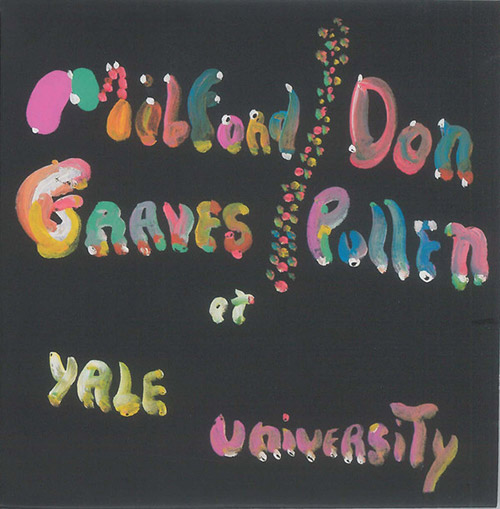

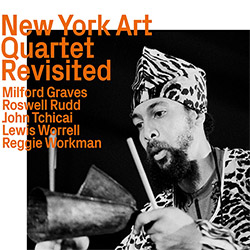
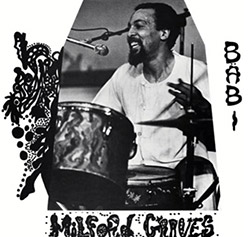
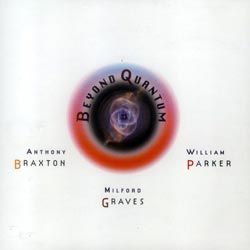

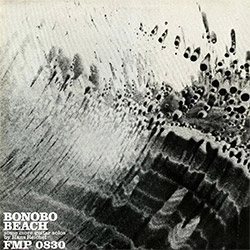
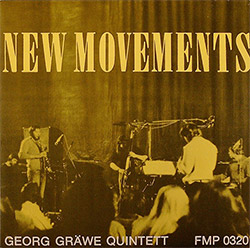
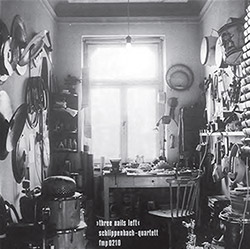

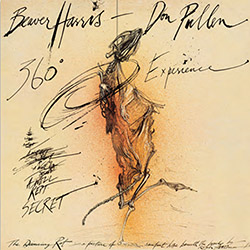
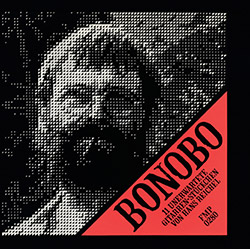
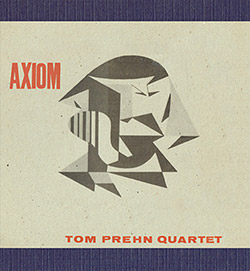
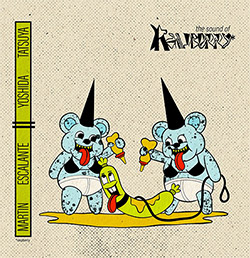



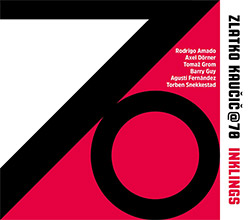





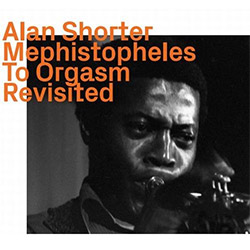




![McCaslin, Donny: Lullaby For The Lost [VINYL]](https://www.teuthida.com/productImages/misc4/36681.jpg)
![Ellis, Don: The 1960s Albums [4 CD BOX SET]](https://www.teuthida.com/productImages/misc4/36682.jpg)
![Cherry, Don / Krzysztof Penderecki: Actions [VINYL 180g]](https://www.teuthida.com/productImages/misc4/36739.jpg)
![Webber/Morris Big Band: Unseparate [VINYL 2 LPs]](https://www.teuthida.com/productImages/misc4/36759.jpg)
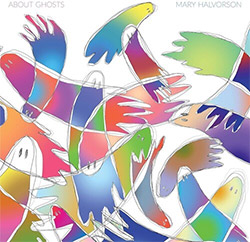

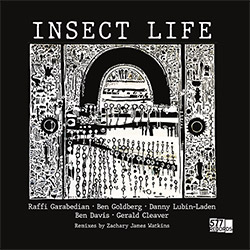






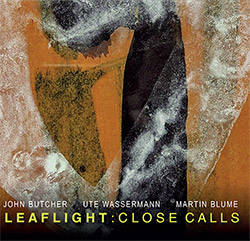
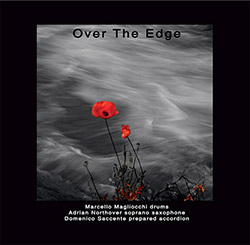



![Eubanks, Bryan: Songbook [VINYL w/ DOWNLOAD]](https://www.teuthida.com/productImages/misc4/36865.jpg)
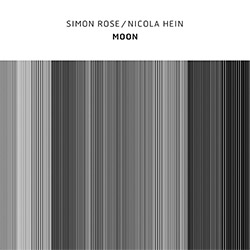

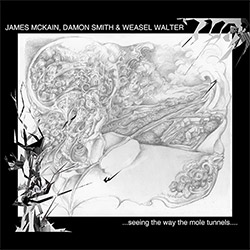
![Toeplitz, Kasper T.: Erosions Programmees [CD + BOOKLET]](https://www.teuthida.com/productImages/misc4/36639.jpg)

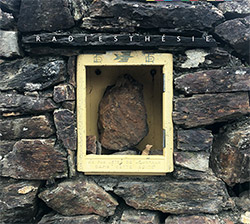
![Genthon, Anouck / Lionel Marchetti: Suite Blanche [2 CDs]](https://www.teuthida.com/productImages/misc4/36642.jpg)
![Le UN (Agnel / Battus / Chiesa / Doneda / Gauget / Marchetti / Petit): Le Havre [VINYL + CD]](https://www.teuthida.com/productImages/misc4/36643.jpg)
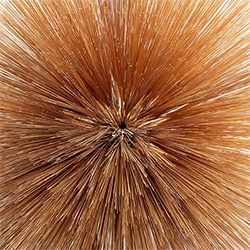


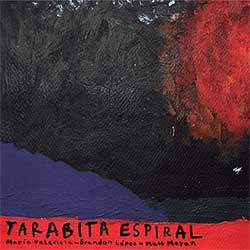
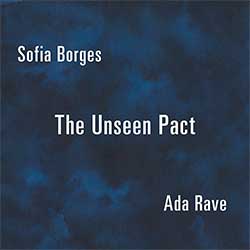
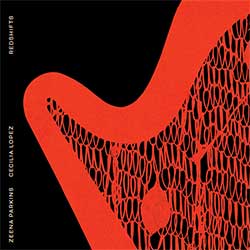
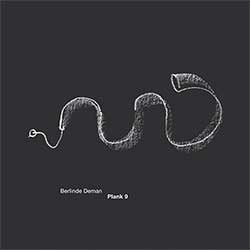
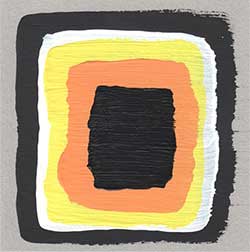
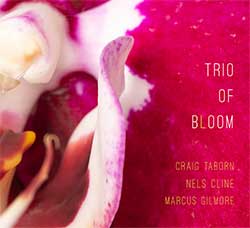

![Singh, Laura Ann Quintet (w / Clark / Hopkins / Lilley / Miller): Mean Reds [VINYL]](https://www.teuthida.com/productImages/misc4/36761.jpg)
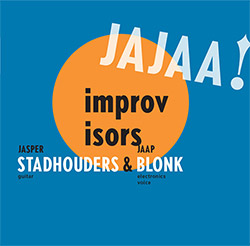


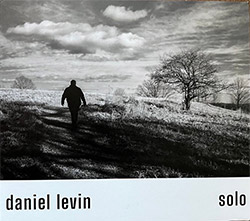
![Gate, The : Amost Live [CASSETTE + MAGAZINE]](https://www.teuthida.com/productImages/misc4/36836.jpg)






![A Magic Whistle: The Solar Cell [VINYL]](https://www.teuthida.com/productImages/misc4/36658.jpg)

![McGee, Hal: Columbus Expedition [Cassette w/ Download]](https://www.teuthida.com/productImages/misc4/36650.jpg)


![Jaeger, Kassel: Fernweh [VINYL 2 LPs]](https://www.teuthida.com/productImages/misc4/36541.jpg)





![+DOG+: The Light Of Our Lives [2 CDs]](https://www.teuthida.com/productImages/misc4/36009.jpg)


![Eternities: Rides Again [CASSETTE]](https://www.teuthida.com/productImages/misc4/36247.jpg)

![Lopez, Francisco: Untitled (2021-2022) [2 CDs]](https://www.teuthida.com/productImages/misc4/36438.jpg)




![Pisaro-Liu, Michael: Within (2) / Appearance (2) [2 CDs]](https://www.teuthida.com/productImages/misc4/36831.jpg)










![Musicworks Magazine: #151 Summer 25 [MAGAZINE + CD]](https://www.teuthida.com/productImages/misc4/36559.jpg)

![Brown, Dan / Dan Reynolds: Live At The Grange Hall [unauthorized][CASSETTE]](https://www.teuthida.com/productImages/misc4/36245.jpg)








![Palestine, Charlemagne / Seppe Gebruers: Beyondddddd The Notessssss [VINYL]](https://www.teuthida.com/productImages/misc4/36206.jpg)
![Palestine, Charlemagne / Seppe Gebruers: Beyondddddd The Notessssss [NEON GREEN VINYL]](https://www.teuthida.com/productImages/misc4/36207.jpg)

![Laubrock, Ingrid: Purposing The Air [2 CDs]](https://www.teuthida.com/productImages/misc4/35639.jpg)

![Yoko, Ono / The Great Learning Orchestra: Selected Recordings From Grapefruit [2 CDs]](https://www.teuthida.com/productImages/misc4/35841.jpg)


![Halls Of the Machine: All Tribal Dignitaries [CASSETTE w/ DOWNLOAD]](https://www.teuthida.com/productImages/misc4/36134.jpg)



![Koenjihyakkei: Live at Club Goodman [2 CDs]](https://www.teuthida.com/productImages/misc4/36111.jpg)

![Sorry For Laughing (G. Whitlow / M. Bates / Dave-Id / E. Ka-Spel): Rain Flowers [2 CDS]](https://www.teuthida.com/productImages/misc4/35985.jpg)

![Rolando, Tommaso / Andy Moor : Biscotti [CASSETTE w/ DOWNLOADS]](https://www.teuthida.com/productImages/misc4/36106.jpg)


![Electric Bird Noise / Derek Roddy: 8-10-22 [CD EP]](https://www.teuthida.com/productImages/misc4/35970.jpg)








![Elephant9 : Mythical River [VINYL]](https://www.teuthida.com/productImages/misc4/34624.jpg)



![Elephant9 with Terje Rypdal: Catching Fire [VINYL 2 LPs]](https://www.teuthida.com/productImages/misc4/35355.jpg)
![Deerlady (Obomsawin, Mali / Magdalena Abrego): Greatest Hits [VINYL]](https://www.teuthida.com/productImages/misc4/34876.jpg)




![Coley, Byron: Dating Tips for Touring Bands [VINYL]](https://www.teuthida.com/productImages/misc4/17906.jpg)

![Lost Kisses: My Life is Sad & Funny [DVD]](https://www.teuthida.com/productImages/misc4/lostKissesDVD.jpg)